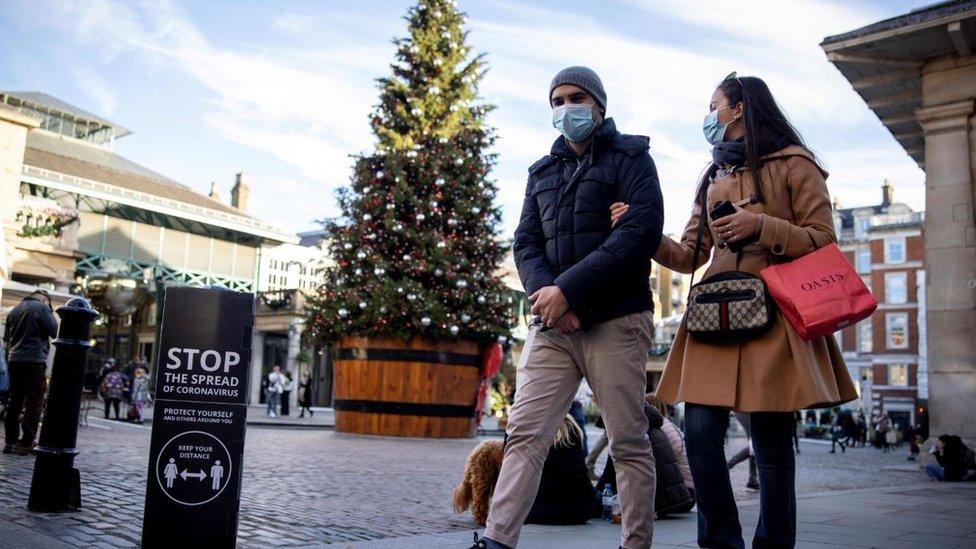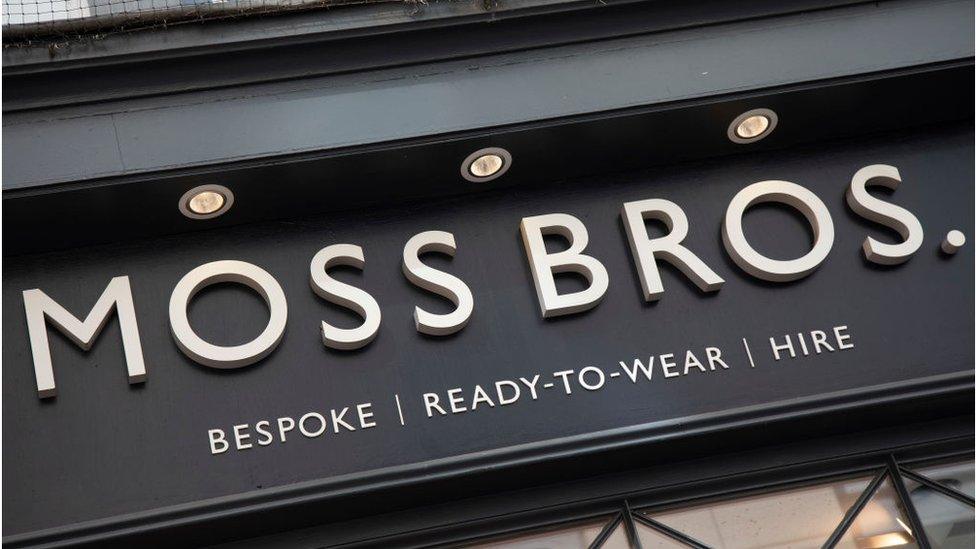Covid: Shops in England can open 24 hours a day over Christmas
- Published
- comments

Shops in England will be allowed to stay open for 24 hours a day in the run-up to Christmas and in January, the housing secretary has said.
Local authorities will be able to temporarily waive the rules restricting retail opening hours.
Writing in the Daily Telegraph, , externalRobert Jenrick said the relaxation of the rules would allow shopping to be "more pleasant and safer".
Shopkeepers and councils would decide how long stores stay open, he added.
Primark has become one of the first to say that it will take advantage of the new rules.
The clothing retailer plans to open 11 of its stores for 24 hours when they are allowed to begin trading again once England's lockdown is lifted on Wednesday.
Months of restrictions to curb the spread of coronavirus have hit the High Street hard, and the hope is the relaxation of opening hours will boost business.
The new rules would run from Monday to Saturday.
"None of us, I suspect, enjoys navigating the crowds, and none would relish that when social distancing is so important to controlling the virus," Mr Jenrick wrote.
"These changes mean your local shops can open longer, ensuring more pleasant and safer shopping, with less pressure on public transport."
Mr Jenrick urged local councils to offer retailers "the greatest possible flexibility" when determining trading hours. Shops and supermarkets would also be given more leeway over stock delivery times he said, to keep the roads clearer during the day.
The British Retail Consortium (BRC) welcomed the move. "With just over three weeks until Christmas, shoppers will welcome the additional opportunities to shop that the government's statement supports," BRC chief executive Helen Dickinson said.
She encouraged Christmas shoppers not to leave it until the last minute and to avoid peak times.
But Kate Nicholls, the chief executive of UK Hospitality, described the relaxing of rules for retail as "arbitrary and unfair".
"You are reopening broad swathes of the economy with next to no restrictions in the middle of what is still set out by the government to be a really significant pandemic," she told the BBC.
"The government has chosen hospitality as the primary tool for controlling transmission with very limited evidence." She is calling for more support for hospitality venues after a study showed that nine out of 10 businesses in the sector were unviable under current restrictions.
But the government hopes the new rules will provide a much-needed boost for bricks-and-mortar retail, after many shops were forced to close during lockdown. That pushed shoppers online, exacerbating a trend which was already putting pressure on some High Street chains.
Sir Philip Green's retail empire Arcadia, which includes Topshop, Burton and Dorothy Perkins, is likely to enter administration within the next 24 hours, putting 13,000 jobs at risk.
Arcadia is far from the only recent casualty in the retail sector - although it could be the biggest.
Earlier this month, fashion chains Peacocks and Jaeger were placed into administration after owner Edinburgh Woollen Mill Group failed to find a buyer.
Thousands of retailing jobs have also been lost at other businesses. Sainsbury's announced recently that it was cutting 3,500 jobs with the closure of 420 Argos outlets and all meat, fish and deli counters.
In August, M&S announced it was set to cut 7,000 jobs over three months.

LOCKDOWN LOOK-UP: The rules in your area
SOCIAL DISTANCING: What are the rules now?
SUPPORT BUBBLES: What are they and who can be in yours?
FACE MASKS: When do I need to wear one?
TESTING: How do I get a virus test?

- Published27 November 2020

- Published30 August 2020
